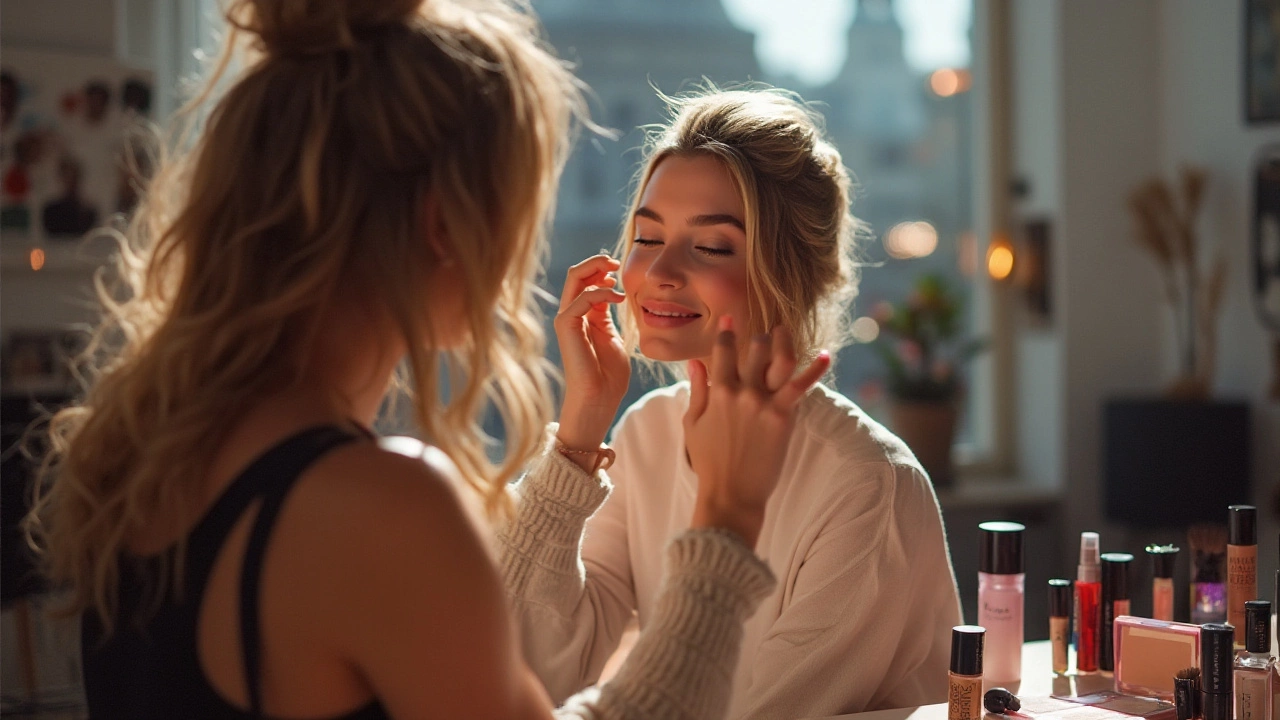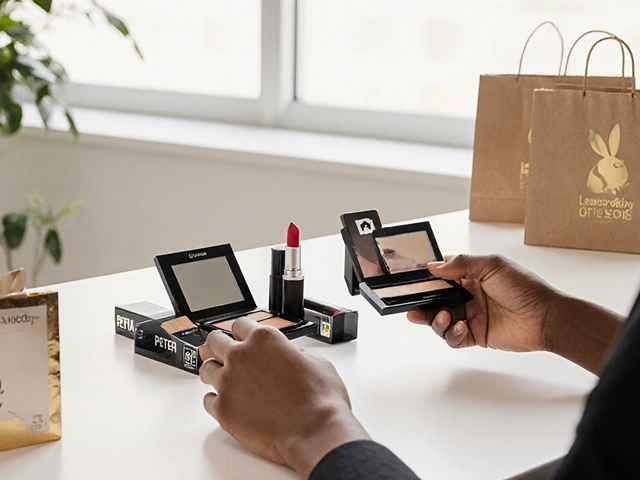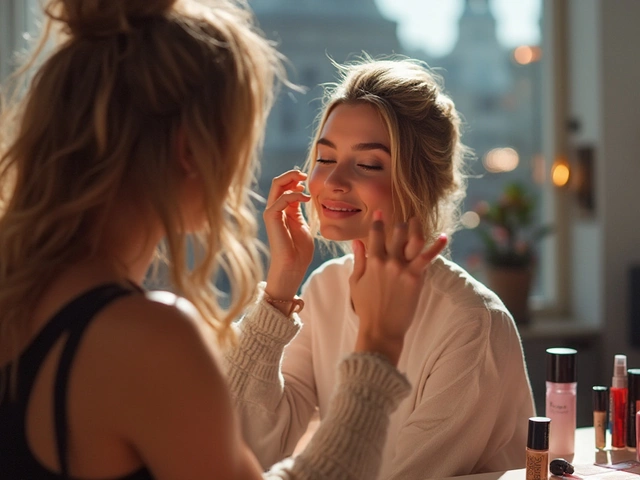The world of beauty can be a dazzling yet overwhelming space, brimming with promises and glossy ads. But beneath the glitter, there's an important aspect one can no longer overlook—animal testing. It's a concern that weighs on the conscience of many makeup lovers and conscientious consumers.
Luckily, an increasing number of brands have chosen the path of compassion, crafting products that are enchanting and ethical. Opting for cruelty-free makeup not only speaks volumes about your values but also supports a growing movement towards more humane practices.
In this article, we'll delve into some brands you can rely on for a guilt-free beauty routine, provide tips on recognizing genuine cruelty-free products, and clear up common misconceptions. It's time to paint your face with integrity, embracing a kinder form of beauty.
- Understanding Animal Testing
- Top Cruelty-Free Makeup Brands
- How to Identify Cruelty-Free Products
- Debunking Myths Around Cruelty-Free Brands
Understanding Animal Testing
Animal testing is a topic that has long stirred passionate debates across the globe. As we explore this sensitive subject, it's crucial to understand what it entails. In essence, animal testing involves the use of animals to test the safety and efficacy of products before they reach the consumer market. This often means subjecting animals to various painful and stressful procedures to study reactions to chemicals or other substances. Historically, this was done under the premise of ensuring human safety, a purpose rooted in the early days of scientific and medical advancement.
Cruelty-free makeup advocates argue that these long-standing practices are not only outdated but also unnecessary, thanks to advancements in technology. Modern alternatives like cultured cell tissues, computer modeling, and other methods bypass the need for animal subjects entirely, offering results that can be more relevant to humans. Moreover, these alternatives are not only more ethical but also cost-effective and quicker, presenting strong arguments against the continuation of animal-related testing.
Many consumers are often bewildered by the terms used on product labels, such as 'not tested on animals' or 'vegan cosmetics.' These phrases can sometimes mislead as they might not mean the same thing as a product being truly cruelty-free. Understanding these nuances is key to making informed decisions. Some companies label their products as cruelty-free but may still engage in practices that involve third-party animal testing, especially in regions where these tests are mandated by law as part of the regulatory process.
The Humane Society International notes, "More than 500,000 animals die each year in cosmetic testing worldwide," highlighting the secretive impact of beauty rituals.
Statistics often reveal the stark reality. A staggering number of animals, including mice, rabbits, and guinea pigs, continue to be part of product testing in various industries every year. The toll on these creatures is often hidden from the public eye, leaving many unaware of the implications behind seemingly innocuous makeup choices. However, consumer demand for transparency and ethical practices is growing, urging cosmetics companies to reassess their methodologies.
While legislative changes are being pursued in many parts of the world to ban or restrict animal testing for cosmetics, it's clear that change is slow but inevitable. Ethical beauty is becoming more defined by consumer choices than corporate decisions. Thus, understanding the dynamics of animal testing not only empowers you with knowledge but encourages a mindset focused on compassion and sustainability. By voting with your wallet, you contribute to a larger movement advocating for the voices less heard, yet profoundly affected by the allure of beauty.
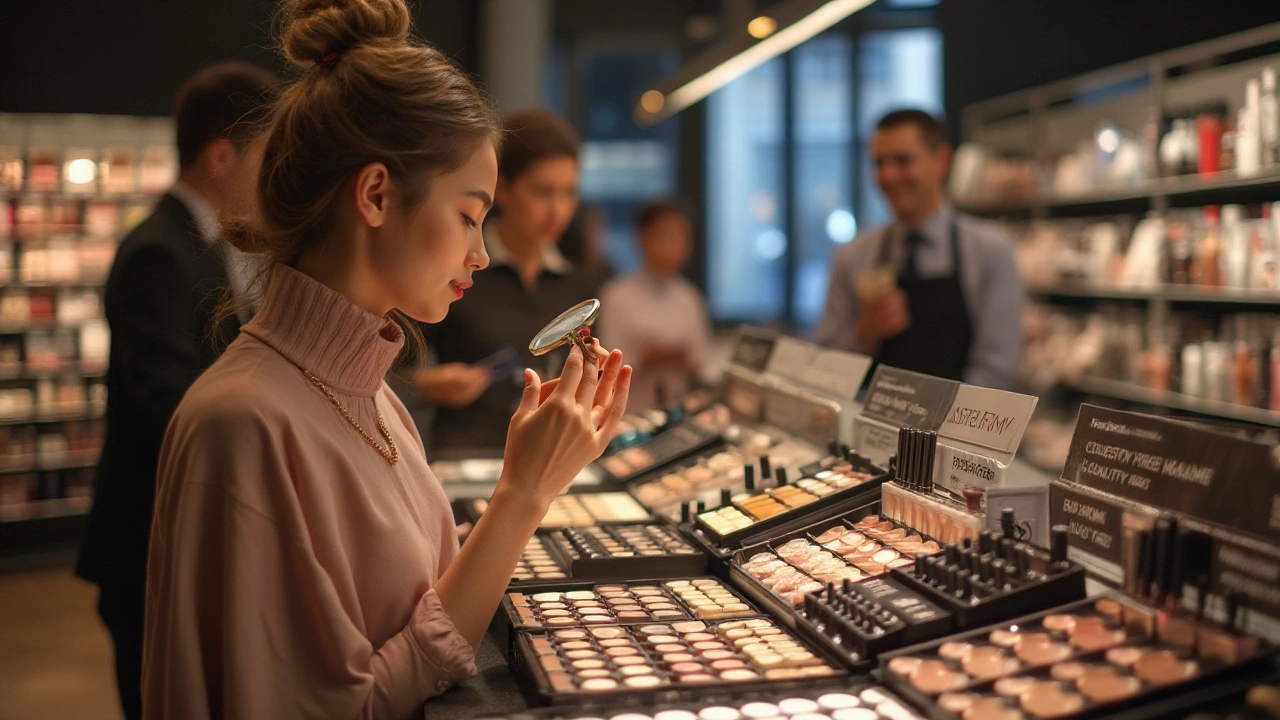
Top Cruelty-Free Makeup Brands
With the rising demand for cruelty-free makeup, many beauty brands have made conscious efforts to deliver products with compassion. Let's begin with one of the pioneers, Urban Decay. They've been advocating against animal testing for years, providing a stunning range of makeup that's vibrant and innovative, all without harming animals. Urban Decay's commitment is solidified with their 'cruelty-free' tag vividly displayed on their products, making them a favorite among those who wear their values on their sleeves—quite literally, in this case.
Another brand that deserves a bright spotlight is Too Faced. Famous for their playful packaging and eye-catching palettes, they bring joy wrapped in ethics. Too Faced proudly stands by their no-fur policy, ensuring every cheek stain and shimmering shadow is created with kindness. They go beyond merely avoiding animal testing by making a substantial portion of their line vegan, appealing to a wider conscientious audience.
Consider also ELF (Eyes Lips Face), a brand built on the premise of quality, affordability, and ethic. ELF boasts an entirely vegan lineup, contesting the long-held belief that cruelty-free cosmetics come with a hefty price tag. This brand has democratized access to ethical beauty, proving that being conscious shouldn't cost a fortune. They have set a stellar example of how businesses can thrive on foundations of respect for life and transparency.
Let’s not forget about Tarte Cosmetics, offering an extensive selection that's both high-performance and sensitive to ethical concerns. The brand's Amazonian Clay Foundation is already a cult favorite, blending the simplicity of nature with the luxury of coverage without resorting to animal cruelty. Tarte's passion for sustainable ingredients further underscores their commitment to benefiting both users and the planet.
A data-backed overview from Harper's Bazaar highlights that more than a third of millennials are willing to pay more for sustainable and animal-friendly products. This trend has led luminaries such as Fenty Beauty to pledge an end to animal testing. While Fenty isn't entirely vegan, their efforts to include vegan options coupled with their stance on cruelty-free practices opens the platform to more informed and compassionate consumer habits.
“The greatness of a nation and its moral progress can be judged by the way its animals are treated.” — Mahatma Gandhi. This quote fuels the motivation behind the surge of cruelty-free brands we see today, aiming for progress that respects every creature's right to live without interference.
As the collective consciousness shifts toward ethical consumerism, these brands proudly lead the way. They not only defy the outdated norms of beauty manufacturing but also set new standards that celebrate integrity. In making considered choices, you help nudge the industry towards a future where animal testing is truly a relic of the past.
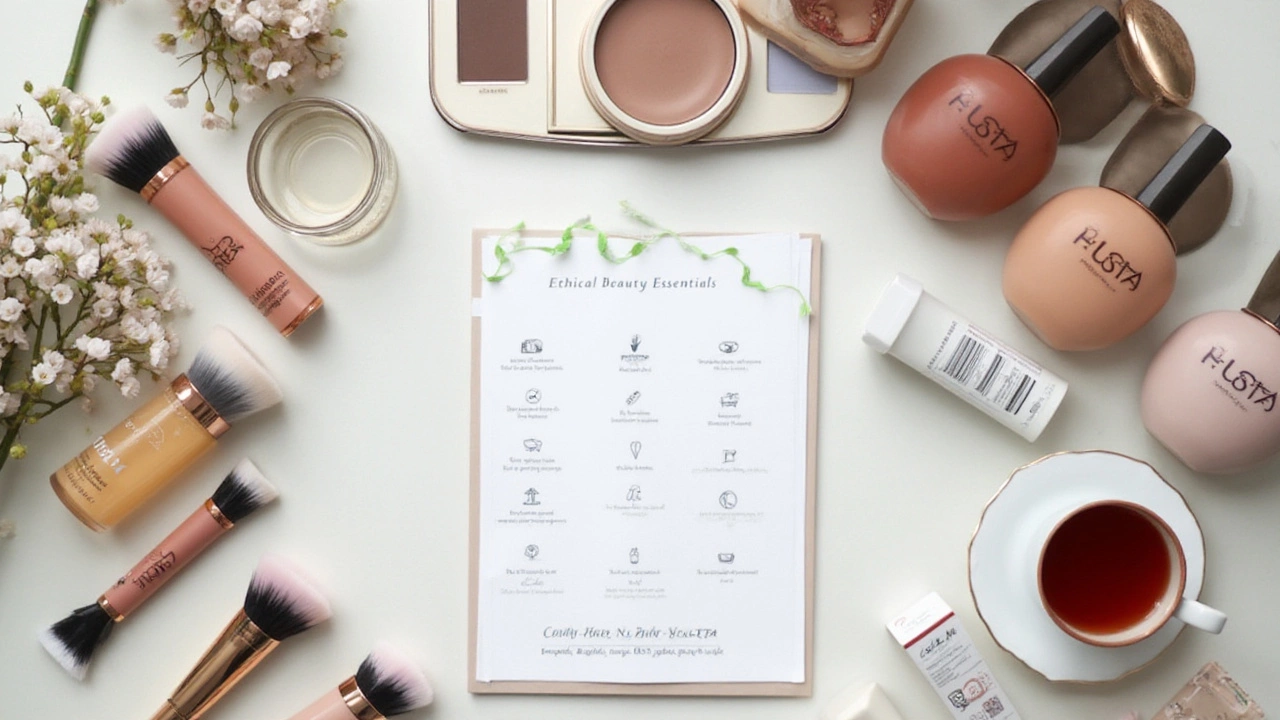
How to Identify Cruelty-Free Products
When you embark on the quest to find truly cruelty-free makeup, the array of products and the abundance of labels can quickly become overwhelming. However, identifying a product that is not tested on animals becomes much easier once you know what to look for. The first step is understanding the significance of certification logos. Organizations such as Leaping Bunny and PETA maintain strict standards and issue recognizable logos. The Leaping Bunny logo, for instance, is often depicted as a rabbit and is a trustworthy mark indicating that no animal testing has been conducted at any point in the creation of the product.
Beyond labels, it is crucial to dig a little deeper into the company’s transparency about their testing policies. Many companies proudly display their cruelty-free status on their websites, explaining the steps taken to ensure that no element, including ingredients sourced from suppliers, has been tested on animals. Watch out for ambiguous language on packaging like 'against animal cruelty' or 'cruelty-free product,' which might not fully guarantee the claims. To get more accurate information, checking third-party resources and databases is highly recommended. Ethical Consumer and the Logical Harmony websites are incredibly reliable for verifying these claims and help maintain your commitment to ethical beauty standards.
"The adoption of non-animal testing methods not only reduces unnecessary animal suffering but often enhances the relevancy to humans," says Dr. Julia Baines, Science Advisor at PETA.
For those navigating international markets, be aware that regulations and labels might vary. Some countries mandate animal testing for certain products, particularly China, where imported cosmetics historically underwent mandatory animal trials. However, as of recent years, shifts in regulation have introduced non-animal testing options, making it easier for international cruelty-free brands to enter these markets while maintaining their standards.
To ensure you're choosing ethical beauty, be aware of parent companies. Even if a specific brand is cruelty-free, its parent company might not be. It's a personal choice how deep you wish to go in your cruelty-free journey, but having this knowledge empowers you to make an informed decision. By collectively gravitating towards vegan and cruelty-free products, consumers push the industry towards a more humane, ethical future, ensuring no animal suffers for beauty's sake.
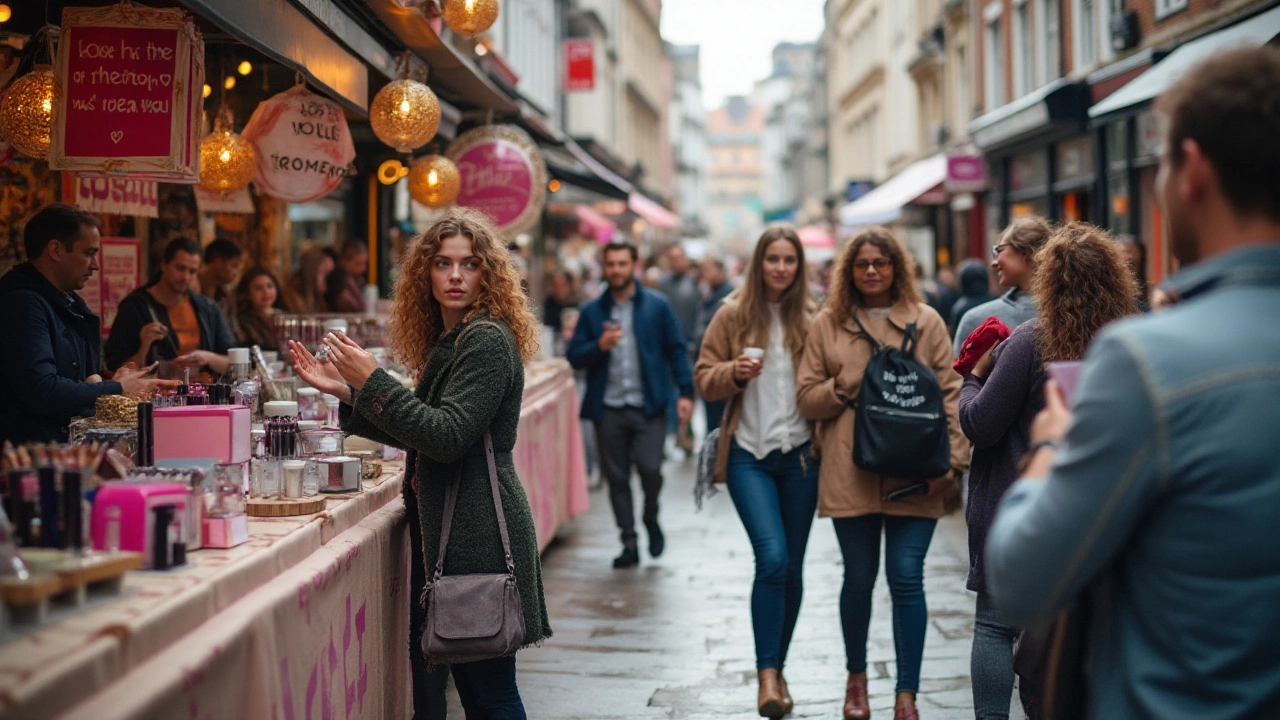
Debunking Myths Around Cruelty-Free Brands
Exploring the landscape of cruelty-free makeup can sometimes feel like navigating a maze of misconceptions. One of the most pervasive myths is the belief that cruelty-free products are exorbitantly priced compared to their counterparts. In reality, the price range for these products varies widely, making ethical beauty accessible to almost every budget. Brands like e.l.f. Cosmetics and Wet n Wild demonstrate that compassion can be affordable, offering an array of products without a premium on kindness.
Another misunderstanding is the assumption that cruelty-free brands provide limited diversity in their product lines. The truth is far from it; companies are continually expanding their ranges. For example, Fenty Beauty has set high standards by offering an extensive spectrum of shades for every skin tone. Such efforts shatter the myth of limited options, proving that ethical beauty brands can also embrace inclusivity.
"The growing demand for cruelty-free cosmetics has encouraged a multitude of brands to innovate and diversify their offerings," says Jessica Grey, an industry analyst.
There's also a misconception that cruelty-free and vegan cosmetics are synonymous. While cruelty-free products are not tested on animals, they may still contain animal-derived ingredients. Conversely, vegan products exclude these ingredients but may not always be cruelty-free in terms of testing practices. This distinction is crucial for consumers seeking both ethical formulations and testing methods.
Some consumers worry about the regulatory challenges of cruelty-free claims, assuming the certification process is unclear or unreliable. It's essential to know organizations like Leaping Bunny and PETA have stringent criteria. When you see these logos on products, they are trusted assurances of a brand's commitment to being free from animal testing. Conducting your research can further illuminate the integrity of a brand's cruelty-free status, preventing the subsidization of misleading marketing.
Another popular myth is the belief that cruelty-free products don't provide the same quality or longevity as other makeup lines. The evolution of beauty formulations over the years has debunked this notion. Many cruelty-free brands often incorporate the latest scientific advancements to ensure their products meet consumer expectations. Stellar reviews from industry experts and users alike affirm their efficacy and performance.
Accessing Reliable Information
Consumers often feel overwhelmed by the fragmented information available online about cruelty-free practices. To aid this, several resources provide updated and authenticated lists of cruelty-free brands. Advising consumers to seek out guidelines from verified sources ensures choices are informed and responsible.
| Myth | Truth |
|---|---|
| Cruelty-free is expensive | Many affordable brands offer cruelty-free options. |
| Limited product diversity | A wide color palette and product range are available. |
| Cruelty-free equals vegan | They aren't mutually inclusive; understand definitions. |
| Certification isn't reliable | Credentials from established entities guarantee authenticity. |
| Quality compromises | High standards of innovation often accompany cruelty-free products. |
